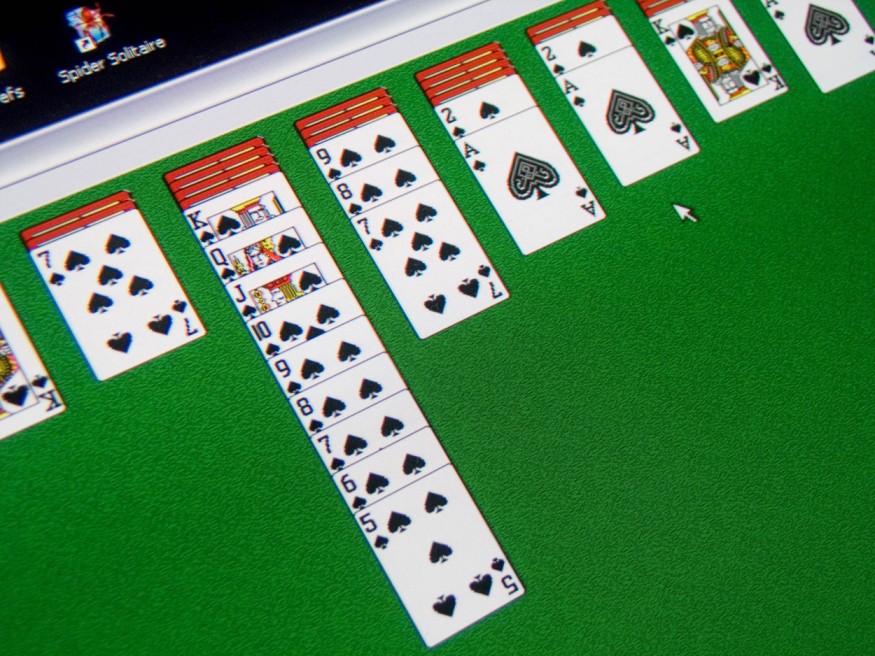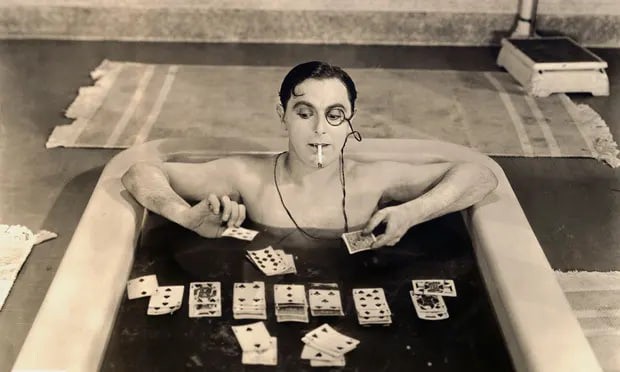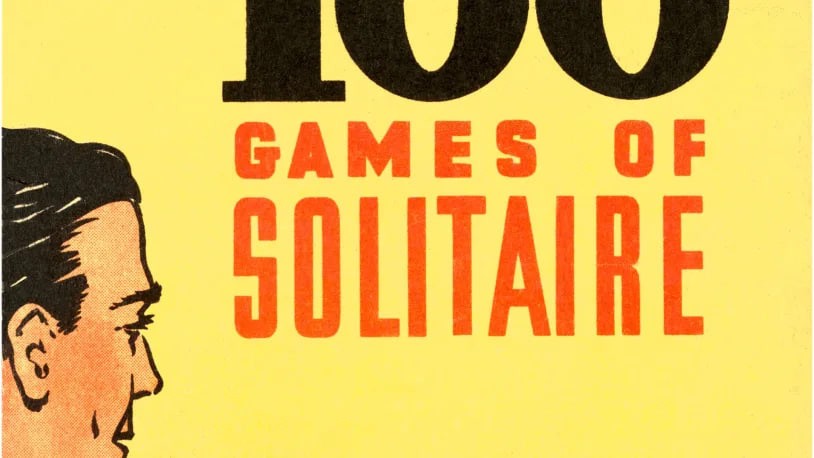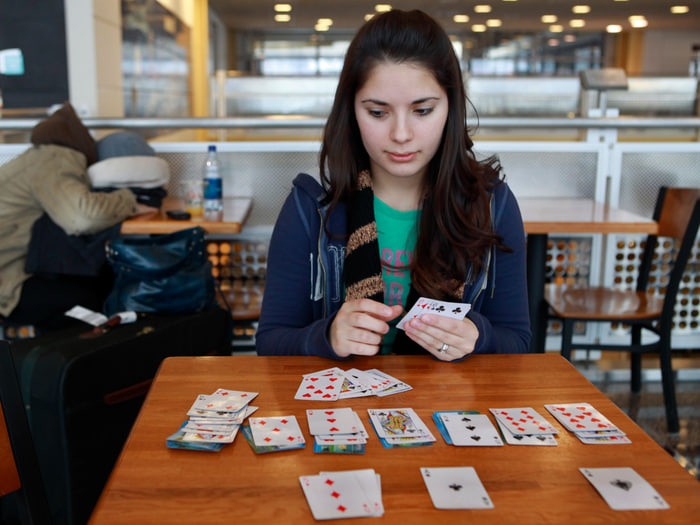
The Long and Winding History of the Solitaire Card Game
Solitaire has been around for centuries, but surprisingly, its history is shrouded in mystery. Nobody can pinpoint its origin with certainty, much less the person who invented it. Many reference works differ significantly concerning the precise dates in Solitaire's timeline, but that just adds to the mystique of the game.
To further comprehend its roots, it should be helpful to briefly touch on the history of playing cards.
Where Did The Modern Playing Cards Come From?

Playing cards initially showed up in Europe in the 1370s, although the first archaeological evidence of playing cards originates from 12th-century China. The Chinese cards were not truly meant to be used as instruments for playing but rather as a form of paper money that could be used for wagering and gambling.
The earliest versions of playing cards were thought to have arrived in 14th-century Europe by way of Egypt. These things were made by hand, resulting in exorbitant prices. Thus, playing cards were a form of entertainment primarily enjoyed by aristocrats. The game-changer was when Germany invented its own rendition of woodblock printing, which lowered production costs, thereby curtailing the price of playing cards.
The French were credited to have conceived the standard deck and suits of playing cards we know today. They were said to produce cards with Hearts, Diamonds, Spades, and Clubs in the 1480s.
When Did Solitaire Games Originate?
Solitaire was rumored to be originally created in France for King Louis IV. Some, however, say that Solitaire likely has a German origin. Whatever the case, the game shot in popularity by the 19th century, after mainly being used as a tool for fortune-telling in the 18th century. Tolstoy, the author of War and Peace, alluded to having used Solitaire to make decisions, albeit in a delusional premise.

Aside from Tolstoy, Napoleon Bonaparte was another famous historical figure linked to Solitaire. When Napoleon arrived and was exiled to St. Helena on October 15, 1815, he played a lot of Solitaire to ease his boredom and keep his sanity. When you play a solitaire card game today, remember that you're participating in an activity many generations before you have loved.
Solitaire Today
In her book "Illustrated Games of Patience," published in 1874, Lady Adelaide Cadogan produced the first work of writing centered around the game of Solitaire. (Patience is Solitaire's other name.) This led to the influx of more literature regarding card game rules, which played a part in Solitaire's surge in popularity.
Soon enough, different types of Solitaire games began to emerge, one of which is called "Klondike" or "Canfield." This is the Solitaire game made popular by Microsoft Windows in the 1990s. Technological advancement had a significant role in the spread of Solitaire among contemporary audiences.
For decades, the game's presence in the Windows operating system has provided hours of entertainment to billions of people all over the world, many of which were office workers in need of a quick jolt of concentration to stave off boredom.
The digital presence of Solitaire made it more convenient for players as they don't need to bring a deck of cards with them. Many websites today have online versions of Spider Solitaire, FreeCell, TriPeaks, and hundreds of other variants. You can either play with a computer or real people online.
Web based sites like Solitaired and Solitaire Bliss have grown solitaire's popularity online as they feature the game along with dozens of other solitaire variants. The digital side of solitaire offers other unique features like custom card decks and backgrounds, user statistics tracking, games of the day, and other options such as unlimited undo/hint buttons. This has continued to evolve the game as players of all ages can learn and explore different solitaire variants, finding games from easy to challenging.
Types of Solitaire Games
Solitaire's popularity spawned hundreds of variations, ranging from the most complex to the simplest. Here are some of the most common Solitaire variants being played today:

Klondike
Also known as Canfield, Klondike is the classic game of Solitaire most people know. It uses the standard deck of cards without Jokers arranged in four piles representing each suit. The game's objective is to set the piles in ascending order from Ace to King.
TriPeaks
TriPeaks, also known as Pyramid Solitaire, is an easier variant to play. The goal is to remove or clear all the cards that form three pyramids.
Monte Carlo
The Monte Carlo Solitaire is a bit more complicated, but once you get the hang of it, it can be addicting. This variant involved matching pairs of cards with the objective of discarding all tableau cards in pairs to the foundation.
Spider
Spider Solitaire is considered to be the second-most popular variation behind Klondike. But compared to the typical Solitaire, this version is harder since you can't often recover from a single mistake. The objective of the game is to stack 13 cards of one suit, arranged from Ace to King, on top of a pile. When a whole suit of 13 cards is arranged in this way, it gets taken off. You win the game if you can play out all four suits.
FreeCell
FreeCell is another popular variation, but unlike other Solitaire game types, almost every deal is winnable. The game's goal is to stack all the cards face up on the foundations. Starting with the Ace, each foundation develops in ascending sequence. Only Aces can be transferred to an empty foundation, and only the next ranked card of the same suit can be added on top of it.
Why Should I Play Solitaire?

The effect of playing card games in one's mental and emotional health have been well-documented. Solitaire, for instance, is a highly cerebral game, which can teach the brain patience, logic, reasoning, and decision-making. Unlike the toxic world of social media, playing Solitaire puts you in a light meditative state which revitalizes the body and mind and aids in regulating negative emotions like tension, anxiety, and anger.
If you're having trouble with the hand life is giving you, all pun intended, you can step away from the stress for a few minutes by playing a card game like Solitaire. The example of Napoleon Bonaparte in St. Helena was one of the earliest anecdotal records of how Solitaire has kept a person sane in the middle of a miserable experience.
The French emperor was just defeated by the British troops in the Battle of Waterloo and had to be exiled to the South Atlantic island because he was still viewed as a threat by his European enemies. The natives of the island found out Napoleon played a lot of Solitaire, until he succumbed to a disease six years later.
Still, like Napoleon, if you're currently losing your own battle, you can find a temporary refuge in Solitaire, at least until you can find a permanent solution. Without a doubt, playing Solitaire occasionally is good for your health, especially from a mental and emotional aspect.
Final Thoughts
Who would have thought Solitaire has such a deep and rich history? Even though we probably will never know who invented it or pinpoint where the game originally came from, it's an eye-opening experience to learn about its journey and how it came about. Thanks to the digital age and the improvement of technology, Solitaire will live on and be played and enjoyed by billions more in the future.










